Love & Loss, Jane Campion-Style
While airing the old gray matter, trying to recall good love stories written and directed by women for the Lovesick Blogathan, I came across many that could have made for a post rivaling Yonge Street and the Nile in length. Rather than digress upon all of these terrific films, which included Randa Haines' Children of a Lesser God (1986), Sally Potter's Yes (2005) and even unheard-of Canadian director Holly Dale's little-known Blood & Donuts (1995), it seems the smarter idea to tap the one recurring theme that nearly all of these films had, especially the better ones, and try and talk about that instead. Understanding that conflict is vital to almost all writing involving human interaction, it feels a natural course to discover that some major dynamic hurdle exists in these writings on love. Sacrifice, pain and loss seem to be the staples of the humble pie that often accompanies affairs of the heart. Whether at the beginning or at the end or somewhere along the way, it's almost necessary to the real fulfillment of love to experience a loss of some kind. Sometimes that loss prepares Cupid's pathetic victim for what might be the best thing that ever happened to her or him...and sometimes, it sends us to a quieter stage to lie in wait for the next.
Jane Campion seems to understand a lot about love and its partnership with loss and she has a special talent for really peeling away the layers of familial relations to augment the rawness and scariness, the abject loneliness, that can surround and even overwhelm two people who are trying to make a go of it. She did that jarringly, but wonderfully in Sweetie (1989), about (among other things) a woman afraid of trees who co-plants an alder sapling with her new sweetheart as a metaphor for their relationship, and then promptly steals the tree, hides it and pretends to know nothing about the event whatsoever despite the angst it causes her lover . In 1993's more celebrated work The Piano, she takes the idea of loss and gives it a new path that practically begs for close inspection. The technical challenge alone of writing for a heroine who speaks only through a musical instrument -- and by choice -- comes off at first not like a loss, but a study in stubborness, the brand of which can certainly be found among the women embracing the shores of a former penal colony, if it can be found anywhere. That underlying sense of pioneering background colors this work perhaps most of all, imbuing the main character with real spark, but also perhaps alienating some who simply wish to find the love story between Ada (Hunter) and George Baines (Harvey Keitel) tender, romantic and passionate.
Campion uses the film's New Zealand setting well. By opening and ending on the beach upon which Ada's piano is deposited and left to soak in ocean spray, she hinges the entire story upon a place where change is constant, where give and take simply exist. Within the first few minutes, underscored by surf, we are invited to understand the depth of Ada's inner struggle. Her father has sold her in marriage to the Reverend Alisdair Stewart; her very entrance is a glum and unflattering sacrifice. She raises a daughter from a previous marriage, a constant and lonely reminder of her past. When her new husband won't allow the piano to weigh down their caravan, small notepad and sign language between Ada and Flora aside, she loses her voice. Physically, she could speak, yes, but as she tells us right from the start, she has not since she was six or seven and even she does not know why. In a world of films which seem to lean upon the convention of men figuring women out, the admission that a woman can be a perplexing mystery to herself is more than just a departure from the norm. That tiny detail allows us to explore Ada's love affair with life through her piano as true seers, not knowing any more or less than she does at any given moment. We hear only the piano notes and this very fleeting voice that sounds like writing in a journal.
Perhaps because vocal communication can be such a frustratingly limited means of expressing ourselves and making ourselves understood and known to each other, the centrifugal force of Campion's story does most of the work for her. Her husband and his friend are each curious about her in different ways. The former, wishing his wife to like him, attempts to appease her; but George Baines -- the more relaxed man who spends more time among the Maoris than the whiter folks -- wishes her to love him. In an unlikely trade, Baines becomes the proprietor of the piano in order to receive "lessons" and before long is trading romantic gestures for Ada's increasingly clandestine visits. Love has become a negotiation.
(...a very intense and erotic negotiation performed by textured compositions and a terrific full-nude shot of Harvey Keitel that I've never been convinced didn't help Hunter win the Oscar*, despite her apparent talents.)
Yet despite all of this hardship and loss -- a basic disrespect for a property that means much to Ada, far beyond the value of its ebony and ivory -- Campion also seems to be saying that people who have no way of communicating and who may not even know about love from lack of experience can find true happiness under even the most grotesque or bizarre of circumstances. Witness when the good Reverend cuts off Ada's finger in a fit of jealous rage, an attempt to wound the part of her that makes love to his indifferent neighbor so effortlessly, using only a housing of wood and some string. It feels like he provides the fulfillment of Ada and George's love in many ways by severing her finger. That violent culmination of a life spent in silence doesn't force Ada to shout out like you might expect it to, but to gather herself in a new way with a fresh outlook.
Were I to discover that I had the love of a man like George Baines, I'd be willing to lose a finger to that end, too.
*Probably one of the best examples among Oscar moments regarding the magic of film and the suspension of disbelief. We all love Holly Hunter, even those who could do without most of her films, but when she spoke in that lovely cagey drawl of hers to accept the award, The Piano lost a bit of its charm.
Jane Campion seems to understand a lot about love and its partnership with loss and she has a special talent for really peeling away the layers of familial relations to augment the rawness and scariness, the abject loneliness, that can surround and even overwhelm two people who are trying to make a go of it. She did that jarringly, but wonderfully in Sweetie (1989), about (among other things) a woman afraid of trees who co-plants an alder sapling with her new sweetheart as a metaphor for their relationship, and then promptly steals the tree, hides it and pretends to know nothing about the event whatsoever despite the angst it causes her lover . In 1993's more celebrated work The Piano, she takes the idea of loss and gives it a new path that practically begs for close inspection. The technical challenge alone of writing for a heroine who speaks only through a musical instrument -- and by choice -- comes off at first not like a loss, but a study in stubborness, the brand of which can certainly be found among the women embracing the shores of a former penal colony, if it can be found anywhere. That underlying sense of pioneering background colors this work perhaps most of all, imbuing the main character with real spark, but also perhaps alienating some who simply wish to find the love story between Ada (Hunter) and George Baines (Harvey Keitel) tender, romantic and passionate.
Campion uses the film's New Zealand setting well. By opening and ending on the beach upon which Ada's piano is deposited and left to soak in ocean spray, she hinges the entire story upon a place where change is constant, where give and take simply exist. Within the first few minutes, underscored by surf, we are invited to understand the depth of Ada's inner struggle. Her father has sold her in marriage to the Reverend Alisdair Stewart; her very entrance is a glum and unflattering sacrifice. She raises a daughter from a previous marriage, a constant and lonely reminder of her past. When her new husband won't allow the piano to weigh down their caravan, small notepad and sign language between Ada and Flora aside, she loses her voice. Physically, she could speak, yes, but as she tells us right from the start, she has not since she was six or seven and even she does not know why. In a world of films which seem to lean upon the convention of men figuring women out, the admission that a woman can be a perplexing mystery to herself is more than just a departure from the norm. That tiny detail allows us to explore Ada's love affair with life through her piano as true seers, not knowing any more or less than she does at any given moment. We hear only the piano notes and this very fleeting voice that sounds like writing in a journal.
Perhaps because vocal communication can be such a frustratingly limited means of expressing ourselves and making ourselves understood and known to each other, the centrifugal force of Campion's story does most of the work for her. Her husband and his friend are each curious about her in different ways. The former, wishing his wife to like him, attempts to appease her; but George Baines -- the more relaxed man who spends more time among the Maoris than the whiter folks -- wishes her to love him. In an unlikely trade, Baines becomes the proprietor of the piano in order to receive "lessons" and before long is trading romantic gestures for Ada's increasingly clandestine visits. Love has become a negotiation.
(...a very intense and erotic negotiation performed by textured compositions and a terrific full-nude shot of Harvey Keitel that I've never been convinced didn't help Hunter win the Oscar*, despite her apparent talents.)
Yet despite all of this hardship and loss -- a basic disrespect for a property that means much to Ada, far beyond the value of its ebony and ivory -- Campion also seems to be saying that people who have no way of communicating and who may not even know about love from lack of experience can find true happiness under even the most grotesque or bizarre of circumstances. Witness when the good Reverend cuts off Ada's finger in a fit of jealous rage, an attempt to wound the part of her that makes love to his indifferent neighbor so effortlessly, using only a housing of wood and some string. It feels like he provides the fulfillment of Ada and George's love in many ways by severing her finger. That violent culmination of a life spent in silence doesn't force Ada to shout out like you might expect it to, but to gather herself in a new way with a fresh outlook.
Were I to discover that I had the love of a man like George Baines, I'd be willing to lose a finger to that end, too.
*Probably one of the best examples among Oscar moments regarding the magic of film and the suspension of disbelief. We all love Holly Hunter, even those who could do without most of her films, but when she spoke in that lovely cagey drawl of hers to accept the award, The Piano lost a bit of its charm.
Labels: Campion, Feminism, Film, Lovesick Blogathan

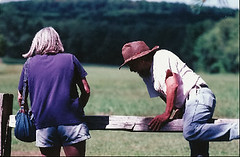
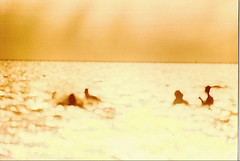
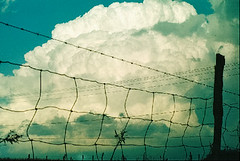
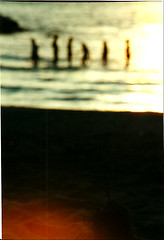
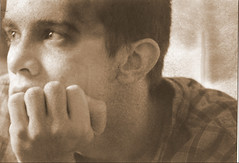
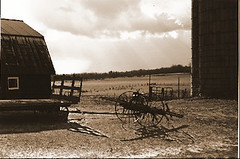
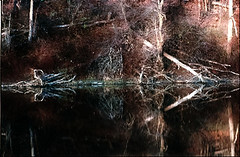






0 Comments:
Post a Comment
<< Home